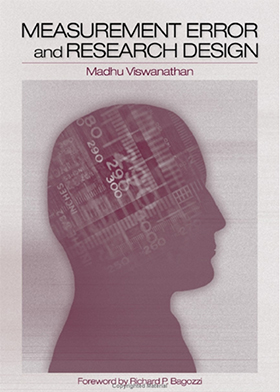Measurement and Research Design Virtual Workshop
Workshops for doctoral and masters students and faculty in the social sciences interested in learning about designing empirical research.

Worshops
Monday, August 17, 2020
8 a.m. - 11 a.m. PDT / 10 a.m. - 1 p.m. CDT
Monday, August 3, 2020
8 a.m. - 12 p.m. PDT / 10 a.m. - 2 p.m. CST
June 22-23, 2020
8am - 2 pm PDT/ 10 am - 4 pm CDT
The earlier workshops covered an introduction to measurement, the measure development process, reliability, dimensionality and validity. This later workshops covered advanced topics including a deeper dive into measurement error, types of measures, and relating measurement error to experimental and survey research design.
Main Takeaways
- Deep understanding of measurement error at an intuitive (over and above statistical) level
- Confidence and ability to design measures and methods while minimizing measurement error
- Understanding the relationship between measurement and research design and translating it into conducting empirical research
Madhu Viswanathan, Professor of Marketing, Loyola Marymount University and Professor Emeritus, University of Illinois, Urbana-Champaign
I have had the privilege of teaching about measurement to doctoral students at the University of Illinois from 1992 to 2019. This led to a deep dive into the intuitive side of measurement error published in a book titled Measurement Error and Research Design published 15 years ago. I felt that the measurement literature was statistical but not sufficiently intuitive. My journey was about dissecting measurement error as minutely as possible in terms of what it is, how it shows up, and how to design measures and methods. Students from many different disciplines have completed my course. Many researchers in the social sciences have read the book.
My workshops are offered on Zoom. At the end of the workshop, you gain confidence and ability in understanding measurement error and how it translates into the measurement of one thing and the measurement (or manipulation) of many things (i.e., the method). Whether you use secondary or primary data, you interpret from data to some variables at a conceptual level, and will find this workshop relevant.